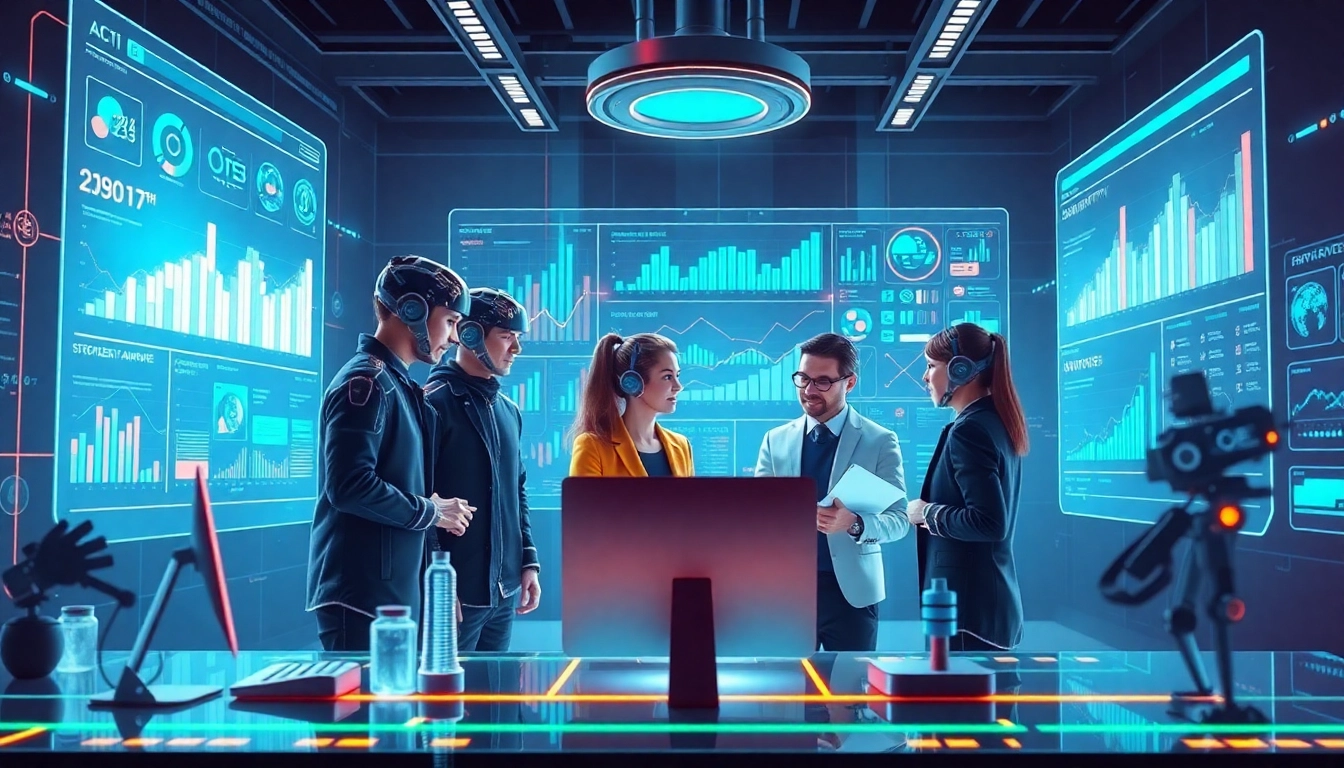Introduction to AI Marketing Agents
In today’s fast-paced digital landscape, businesses are continually seeking innovative strategies to reach their target audiences effectively. One of the most significant advancements in this realm is the emergence of AI marketing agents. These intelligent systems are transforming how marketers approach campaigns, automate processes, and enhance customer engagement.
Defining AI Marketing Agents
AI marketing agents are autonomous software programs designed to execute marketing tasks efficiently using artificial intelligence (AI). They can analyze data, interpret patterns, and make decisions based on their findings. Essentially, these agents serve as virtual marketing specialists, capable of performing diverse roles from customer segmentation to content personalization. The technology that powers these agents varies from machine learning algorithms to natural language processing, all aimed at simplifying and optimizing marketing efforts.
The Rise of AI in Marketing
The adoption of AI in marketing has surged dramatically over the last few years. According to a recent study, the AI marketing industry was valued at approximately $15.84 billion in 2021 and is projected to exceed $107.5 billion by 2028. This exponential growth highlights the recognition of AI’s capabilities among businesses, as more organizations look to leverage data-driven insights to improve their marketing strategies and increase return on investment (ROI).
Benefits of Implementing AI Agents
The advantages of integrating AI marketing agents into business operations are numerous. These benefits include:
- Increased Efficiency: AI agents automate repetitive tasks, freeing up marketers to focus on strategic initiatives.
- Enhanced Personalization: Through data analysis, these agents can create personalized experiences tailored to individual customer preferences.
- Data-Driven Insights: AI agents can process vast amounts of data to deliver insights that inform decision-making.
- Improved Campaign Performance: By continually optimizing marketing campaigns based on real-time data, AI agents help improve conversion rates and drive sales.
Types of AI Marketing Agents
Autonomous Agents
Autonomous agents operate independently to perform marketing functions without human intervention. They utilize machine learning algorithms to adjust their strategies based on user interactions and market trends. Examples include chatbots that handle customer inquiries and recommendation systems that suggest products based on user behavior.
Assisted AI Tools
Assisted AI tools augment human efforts by providing valuable insights and recommendations. These tools support marketers in decision-making processes by analyzing data and predicting outcomes based on historical trends. For instance, platforms like HubSpot offer AI-driven analytics to enhance content marketing strategies.
Hybrid Marketing Systems
Hybrid marketing systems combine both human and AI capabilities, leveraging the strengths of each. Marketers work alongside AI agents to develop campaigns that utilize machine learning-driven insights while incorporating human creativity and emotional intelligence. This synergy results in more effective marketing strategies.
Key Features of Successful AI Marketing Agents
Data Analysis and Insights
Successful AI marketing agents excel in data analysis, converting raw information into actionable insights. They gather data from various sources, including social media, customer interactions, and website analytics, to create a comprehensive understanding of customer behavior.
Personalization Capabilities
One of the standout features of AI marketing agents is their ability to deliver personalized experiences. By understanding customer preferences and behaviors, AI agents can tailor marketing messages, product recommendations, and content to fit individual needs. This level of personalization has been shown to significantly increase engagement and conversion rates.
Integration with Existing Tools
AI marketing agents can seamlessly integrate with existing marketing platforms and tools. This compatibility ensures that businesses can adopt AI technology without overhauling their entire marketing infrastructure. For instance, many AI agents can work in conjunction with Customer Relationship Management (CRM) systems to enhance data precision and customer insights.
Challenges in Adopting AI Marketing Agents
Data Privacy Concerns
As businesses harness AI to collect and analyze customer data, concerns regarding data privacy have become prominent. Marketers must ensure they adhere to regulations such as GDPR (General Data Protection Regulation) to protect consumer rights and maintain trust.
Cost Implications
The implementation of AI marketing agents often involves significant upfront costs. Companies need to weigh the potential return on investment against the expenses associated with procuring AI technology, training personnel, and altering current workflows.
Skill Gaps in the Workforce
The integration of AI technology necessitates a workforce skilled in both marketing and technology. Organizations may encounter challenges in training existing employees or navigating the hiring landscape to find the right talent equipped to handle AI-driven tools effectively.
Implementing AI Marketing Agents in Your Strategy
Steps to Integrate AI into Marketing
To successfully implement AI marketing agents, businesses can follow these key steps:
- Define Objectives: Start by determining what you hope to achieve with AI. Focus on areas where automation or data analysis can drive value.
- Evaluate Tools: Research various AI marketing tools and platforms, considering factors such as functionality, integration capabilities, and user experiences.
- Plan Integration: Develop a comprehensive plan for integrating AI agents into existing workflows, ensuring minimal disruption and maximum synergy.
- Train Staff: Offer training sessions for employees to familiarize them with new AI tools and promote a culture of data utilization.
- Monitor Performance: Implement metrics to track the performance of AI initiatives, allowing for adjustments based on real-time feedback.
Measuring Success and ROI
Measuring the success of AI marketing agents involves establishing clear key performance indicators (KPIs). Common metrics include conversion rates, customer engagement levels, and overall campaign ROI. Regularly analyzing these metrics helps organizations gauge the effectiveness of their AI marketing strategies and refine their approaches accordingly.
Case Studies of Effective Implementation
Several brands have embraced AI marketing agents and witnessed significant success:
- Sephora: The beauty retailer employs AI-driven chatbots to provide personalized shopping advice, which has resulted in higher customer satisfaction and engagement.
- Netflix: By utilizing AI algorithms to recommend content based on viewer preferences, Netflix has significantly improved user retention and engagement.
- Amazon: Amazon’s recommendation engine uses AI to analyze purchasing habits, leading to increased sales and enhanced customer experiences through personalized recommendations.
As these case studies illustrate, the strategic application of AI marketing agents can yield transformative results for businesses across various sectors.



